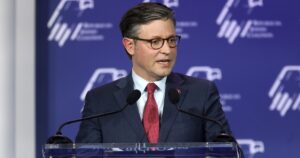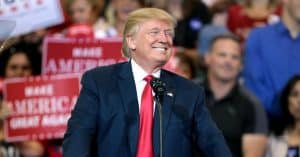Rudy Giuliani Faces New Court Contempt Rulings After Defamation
In a series of legal defeats, Rudy Giuliani has been found in contempt of court twice in the scope of a single week due to his ongoing defamatory allegations against two Georgia election workers. The former New York mayor is now facing significant legal and financial repercussions tied to claims against Shaye Moss and Ruby Freeman.
Giuliani's defiance of court orders regarding defamatory remarks about Georgia election personnel has resulted in two separate contempt rulings this week, highlighting his alleged evasion of a $148 million judgment, the New York Post reported.
Giuliani Faces Consequences for Defamation
In Washington, D.C., federal Judge Beryl Howell declared Giuliani in contempt for continuing to make unfounded claims about Moss and Freeman. This ruling followed a previous case that prohibited Giuliani from sharing defamatory statements about the Georgia voters. Despite this directive, he reportedly reiterated these claims on a November streaming broadcast.
Earlier in the week, Judge Lewis Liman in Manhattan had similarly found Giuliani in violation for neglecting deadlines related to an upcoming trial. The trial, expected to begin on January 16, had been postponed due to Giuliani's failure to submit critical information.
Moss and Freeman's attorneys have requested that the court impose a hefty financial penalty on Giuliani. They propose a fine of $20,000 for each incident of defamation after Judge Howell's order in order to ensure compliance. The attorneys argue that these funds should be sourced from specific exempt accounts claimed by Giuliani.
Legal Arguments and Financial Claims Debated
Giuliani has testified regarding his financial situation, insisting that several of his accounts should be immune from these punitive charges. His legal representative, Eden Quainton, disputed the recommended penalties, stating they are disproportionate, and contended that the statements lacked malintent.
Judge Howell, however, expressed skepticism over excusing Giuliani's behavior due to prior temporary compliance. She highlighted the troubling nature of his actions, implying they might persist due to his belief in their correctness.
Giuliani's political aide, Ted Goodman, has voiced strong criticism of the ruling, framing it as an infringement on the former mayor's rights. He maintained that the judgment sought to silence Giuliani.
High-Profile Case Draws Public Attention
This legal clash highlights the broader questions surrounding Giuliani's commitment to court directives. His previous description by Judge Howell as having the most significant public influence in the courtroom demonstrates the high-profile nature of this dispute.
As the legal battle progresses, both judges involved have commented on Giuliani's conduct. Judge Liman described Giuliani's courtroom testimony as distinctly self-advancing.
The backlash from this and similar court actions underscores the potential implications for Giuliani, especially concerning his financial responsibilities and reputation.
Pivotal Moments in Ongoing Legal Battle
Judge Howell has expressed clear frustration with Giuliani's repeated defiance. Her dissatisfaction was apparent when she remarked about hoping the legal matters were resolved.
Alongside these proceedings, Michael Gottlieb, representing Moss and Freeman, emphasized that his client's focus was on achieving an end to the damaging rhetoric. He reiterated that their goal was for Giuliani to cease the disparagement.
This case continues to draw significant interest due to its implications for free speech, legal compliance, and financial accountability in the political domain.
Impact on Giuliani’s Reputation and Legacy
The outcomes of these legal challenges are likely to shape Giuliani's public image and legacy. His advisors suggest the rulings set a problematic precedent for free expression in the U.S.
As Giuliani battles these contempt findings, the broader impacts on his political and professional standing remain a crucial point of observation. The legal landscape for political figures and their rhetoric continues to evolve in light of cases like this.
The court’s decisions and potential punitive measures could establish influential precedents in holding public figures accountable for public statements.




